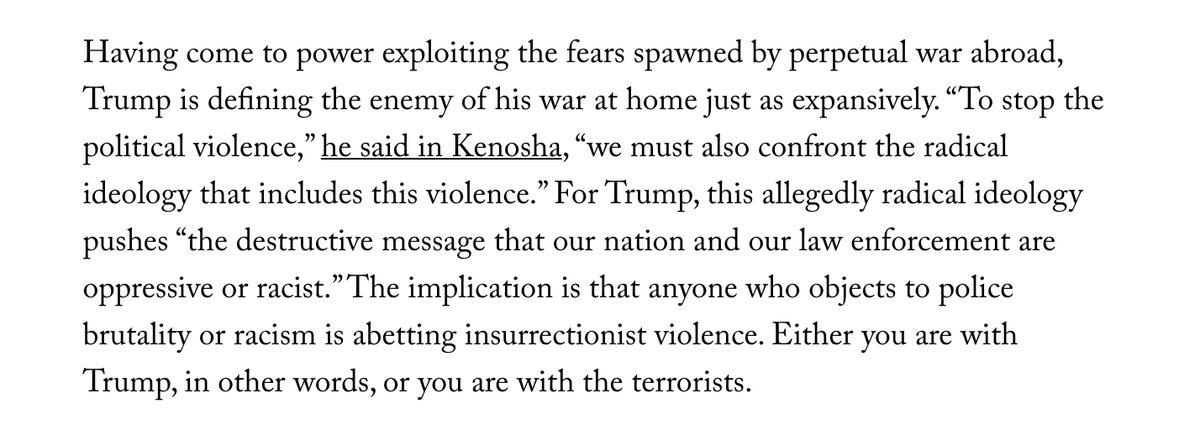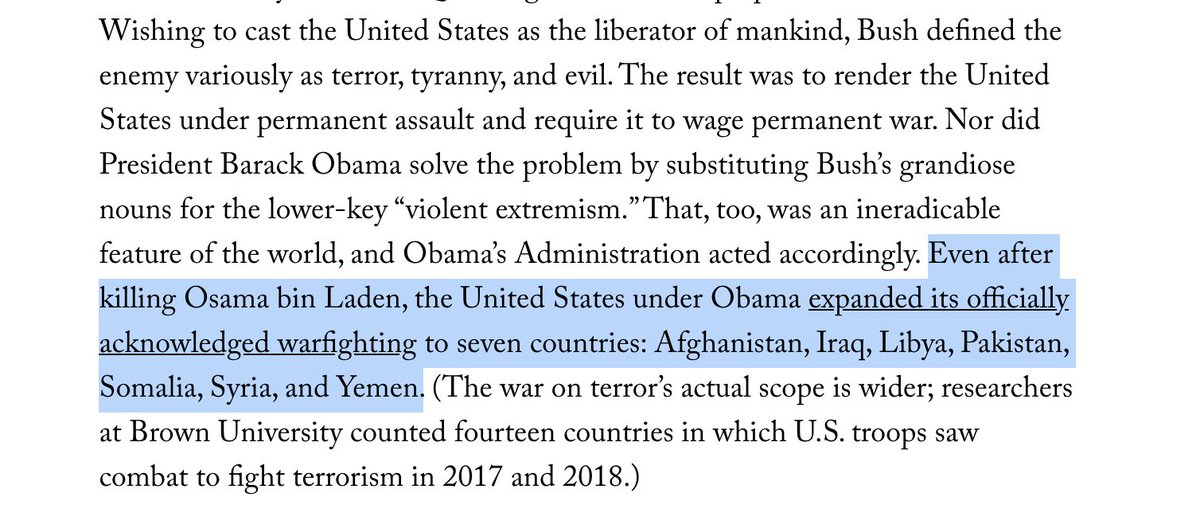As America's political divisions grow only more intense, it can seem tempting to rally around U.S. global leadership — or armed dominance — as one of few areas of unity we have left.
That temptation should be resisted. It is one reason our civic life has broken down.
That temptation should be resisted. It is one reason our civic life has broken down.
America's militarized foreign policy has fueled its divisions at home. Not only have weapons of war poured into police departments and onto U.S. streets, but U.S. leaders have constantly presented much of humanity as mortal enemies who must be feared and vanquished.
Bush and Obama often said decent things about Islam, that America was at war with terrorists, not Muslims. But what spoke louder, both in the greater Middle East and in American society, was that the United States was waging war across the Muslim world, with no end in sight.
When the war went wrong, leaders of both parties failed to admit that America had acted too aggressively, that those on the receiving end understandably struck back. Instead, many Americans were left to blame the enemy for being too dangerous and their leaders for being too weak.
In a diverse society, the kinds of people America was killing abroad — whether construed as Muslim, Arab, Middle Eastern, brown, or colored — could also be found within the United States. The foreign enemy easily morphed into the enemy within.
So it did. Endless war come home on America's southern border, first through vigilante groups and then through the Trump movement, which jumbled Latin American immigrants and Middle Eastern terrorists into a single specter of non-white invasion. 

This summer, endless war expanded its reach into the homeland. The president deployed military and paramilitary forces to U.S. streets and depicted an entire political party as the abettor of insurrectionist, terrorist violence. 

This is a Trump problem, yes, but more profoundly it is an American problem. To my mind, a crucial moment came when the Obama administration killed Osama bin Laden and yet expanded U.S. warfighting across a greater arc of the earth. 

The way forward is to reject the original premise of the war on terror as announced by George W. Bush: "Our strategy is this: we will fight them over there so we do not have to face them in the United States of America."
My further thoughts here: newyorker.com/news/our-colum…
• • •
Missing some Tweet in this thread? You can try to
force a refresh





